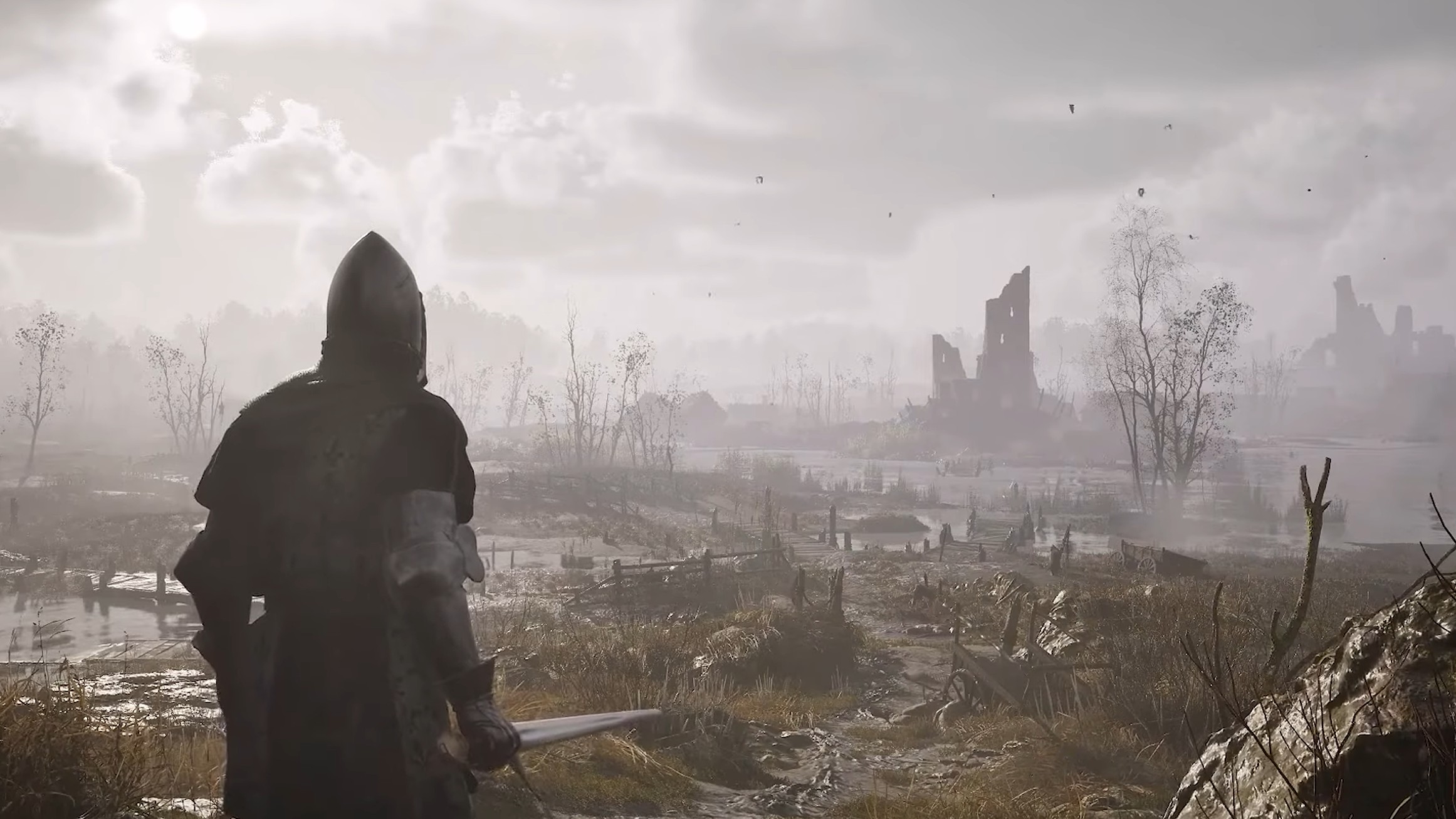
Zack Snyder's Twilight of the Gods Review
Zack Snyder’s Twilight of the Gods is now streaming on Netflix.
Zack Snyder’s partnership with Netflix has been a story of diminishing returns, with projects like Army of the Dead and the Rebel Moon films (and their shamelessly marketed director’s cuts) promising more than they can deliver. Although the animated series Twilight of the Gods signposts itself as one of the Justice League director’s loudest blood-and-sex-filled creative ventures, it manages to come out the other end as a surprisingly enthralling epic despite its many tiresome elements.
On first blush, Twilight of the Gods is Kill Bill in Viking clothing. As with most Snyder works, the visuals are nothing short of stunning, like Germanic paintings brought to life through the collaborative efforts of French studio Xilam Animation and Snyder’s production company, The Stone Quarry. Its first two episodes see warriors Leif and Sigrid’s wedding night sacked by thunder god Thor as he doggedly pursues the trickster god Loki. After surviving Thor’s vicious onslaught, the tragic couple treks out on a revenge tour, joined by a party of equally broken warriors with nothing left to lose. The saga that ensues is treated with heavy doses of ultra-violence, sex, slow-motion action sequences, and juvenile humor – the last of which so grating that it nearly undermines all of the other dialogue.
One of the most enthralling aspects of Twilight of the Gods is the tumultuous relationship between Sigrid and Leif. Sigrid the “blood bride” willingly throws caution to the wind with the same wanton disregard for human consequences as the gods she disdains. Meanwhile, Leif grapples with his past warmongering transgressions in his new life as a paragon of justice. This often leads to the pair butting heads, and the party branding Leif a five-letter word for coward due to his newfound virtuousness.
As he showed with 300, Snyder is at his best when coloring inside the lines of a pre-established pantheon with tons of wiggle room for creative liberties. Sigrid suits the filmmaker’s flavor of power fantasy storytelling without potentially offending history buffs. While much isn’t known about the historical figure she’s based on, what is known is that she was “haughty” and one of the strongest Viking queens ever; one historical account says she burned her suitors in a house to ward away other would-be suitors. While Twilight of the Gods’ Sigrid isn’t quite as hostile, she still supplies ample glimpses of her real-life counterpart’s mean streak. Unfortunately, despite the best efforts of a late-season backstory dump, the rest of the party members struggle to establish themselves beyond their vague character archetypes. This leads to Snyder and company hanging a lot of their writing and intrigue on existing Norse mythology.
Unlike Sucker Punch, Watchmen, and the twilight years of the DC Cinematic Universe, Snyder’s uneven exercise in style over substance feels right at home with Twilight of the Gods. You’ve got awkward sex scenes that overstay their welcome, gratuitous slow-motion action sequences, and a cavalcade of graphic one-liners with a punchline about genitalia. All of which feel tonally appropriate given how Vikings – and the Norse gods in the stories they told – were to strangers and kinfolk alike.
To help make sense of this penchant for depravity, Twilight of Gods weaves in a theme about myths not living up to reality. (“Poems about benevolent gods are falsehoods,” etc.). While this leads to a Thor who’s cruel to the point of parody, it also provides an anchor in the form of Paterson Joseph’s multifaceted portrayal of Loki. The character starts out as an antagonist to both Sigrid and Thor, instigating their battle to the death from the shadows to meet his own mysterious ends– but it’s eventually revealed that Loki is as much a victim as Sigrid is. The only difference being that he’s expected to keep up appearances as an agent of chaos rather than be the tragic hero of his own story.








